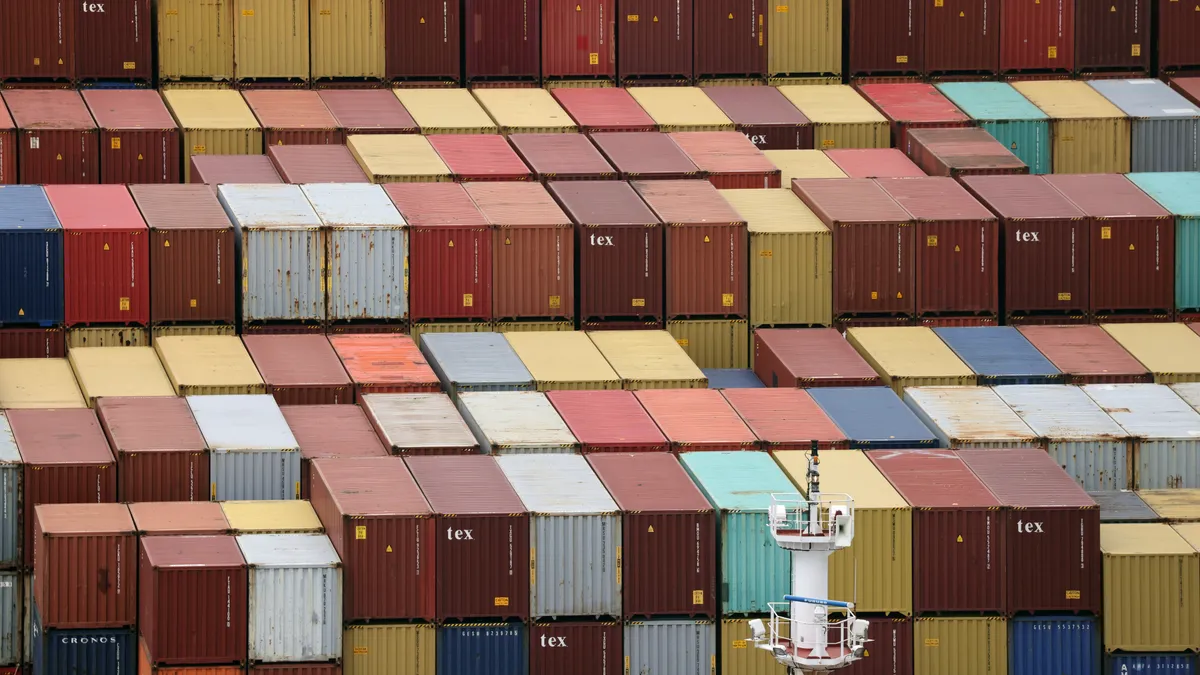Dive Brief:
- The number of blank sailings are at their lowest point since the pandemic started, which is good news for shippers, Sea-Intelligence CEO Alan Murphy said in a June 29 press release.
- When ocean shipping markets were at their worst during the pandemic, one in four sailings from Asia to North America's West Coast was being canceled. But as of June, Sea-Intelligence found the figure had fallen to less than 10%.
- "Shippers operating in the market now should take the current state of affairs as being very normal indeed," Murphy said. "This is as good as it gets."
Dive Insight:
The global container shipping market seems to be on a path to normalization, Sea-Intelligence says.
"However, a normal container shipping market is not the same as a container shipping market with no changes or disruptions; there will always be operational disruptions, a portion of which will be in the form of blank sailings," Murphy said in a statement.
The ocean shipping market has had its fair share of challenges in the past year as high retail inventory levels and lower consumer spending affect freight demand. Meanwhile, labor negotiations at ports — like the currently ongoing strike at Canada's West Coast ports — have periodically affected maritime operations.
Alfred Hoffman, senior vice president of global ocean freight at SEKO Logistics, said in an email "shippers/importers have learned to be more flexible and adjust their supply chain in line with this new reality.”
And the current situation can create advantages for shippers, Akhil Nair, VP of global carrier management and ocean strategy at SEKO Logistics, said in an email.
Nair said fewer blank sailings suggest ocean carriers are deploying capacity, perhaps due to newly built ships. Though this capacity situation may change as carriers scrap ships later, or slow down their services to reduce emissions in line with upcoming regulations, maritime shippers can expect improved access to capacity.
However, he cautioned, shippers might also experience “some longer lead times not only due to service speed but also disruptions, such as the ILWU situation in Canada which will absorb capacity of the queues build up.”












